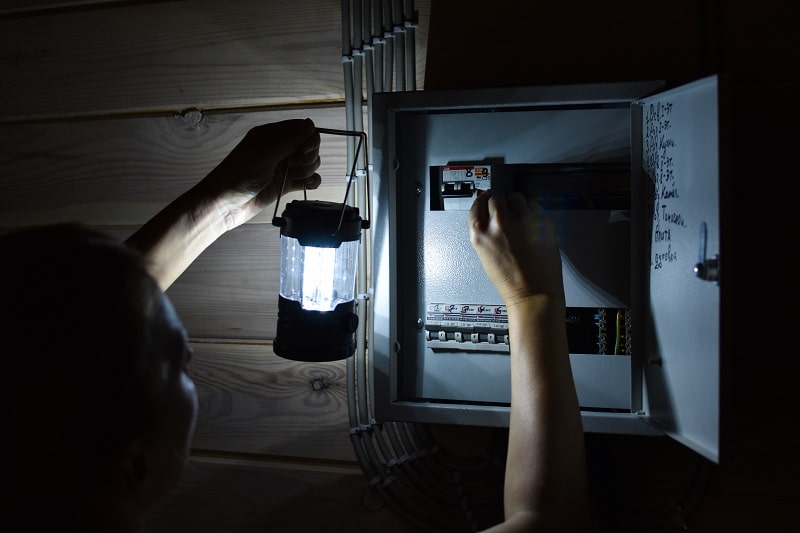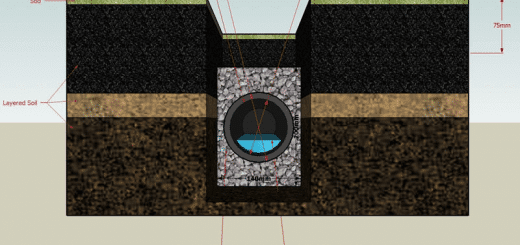5 Things to Check After a Power Outage at Home
Power outages are a common occurrence in the United States, and they should be anticipated during violent storms and adverse weather conditions, like extreme heat or cold.
The first priority during a blackout is to ensure your family is safe. However, you also want to protect items in your home from potential damage.
Here are some things to check if your power suddenly goes out.
1. Your Appliances
One of the first things to do when the lights go out is unplug your appliances. When the power returns, an electricity spike could damage your devices. The surge occurs because electricity is flowing rapidly to the empty electrical wires. Once the power is restored, wait a few minutes before plugging everything back in.
Also, for any electronics, buy power strips with surge protectors. Look for strips with a high energy rating of at least 600 joules. Also, make sure they have the Underwriter’s Laboratories (UL) certification label for better quality.
Fully charge all your devices before a storm. This way, you’re prepared for any emergency. You’ll also want to use your cellphone to check on loved ones.
2. Your Fuse and Circuit Breaker
A tripped circuit breaker could be the cause of the outage. Try resetting it and see if your power returns. To reset your beaker, turn the switch off and then back on. You may hear a few beeps when the power returns, which is normal.
Avoid using any tools or touching the electric meter when adjusting the breakers. If the power isn’t restored, you may want to call a professional. Check to see if your neighbors also lost electricity to verify if the outage was an internal issue.
Try not to overload your circuits to prevent a blown fuse in the future. Plugging in too many lights or devices can cause this issue. You also may want to examine your electric wiring and outlets regularly to ensure there is no damage.
Another thing to remember is built-up moisture can cause circuit breaker issues, so dry out any areas of your home impacted by heavy rainfall.
3. Your Fridge and Freezer Doors
To ensure your food doesn’t spoil, check that your refrigerator and freezer doors are closed. Also, consider using coolers and ice packs for temporary storage. Before eating any food from the fridge, you want to ensure it’s safe to consume. Keep in mind food will stay cool in a refrigerator for about four hours and a freezer for 48 hours.
Consider buying a food thermometer to give you better peace of mind. For example, you should cook ground beef to an internal temperature of 160 F.
Create an emergency kit to prepare for future power outages, and stock it with water bottles and nonperishable items.
Severe storms, which can include heavy rainfall, often cause power outages. You should periodically check your basement for signs of floodingFlooding is the overflow or accumulation of water in areas t... More because too much moisture can lead to mold growth. If you notice any water, you can use a gasoline-powered pump to remove it.
To prevent future damage, inspect your basement’s exterior walls for any signs of cracks. Make sure to fill these right away. Also, cover your windows with a window well to protect your drain from clogging or overflowing.
4. Your Basement
Severe storms, which can include heavy rainfall, often cause power outages. You should periodically check your basement for signs of floodingFlooding is the overflow or accumulation of water in areas t... More because too much moisture can leadLead is a heavy metal that can be toxic to humans, especiall... More to moldMold is a type of fungus that grows in damp or humid conditi... More growth. If you notice any water, you can use a gasoline-powered pump to remove it.
To prevent future water damage, inspect your basement’s exterior walls for any signs of cracks. Make sure to fill these right away. Also, cover your windows with a window well to protect your drain from clogging or overflowing.
5. Your Garage Door
If your basement does become flooded, you may need to evacuate your home. This means you will need to open your garage door manually. Before starting, ensure it’s in a down position. Then, pull the emergency release cord and lift the door straight up.
After the power returns, check to see if the storm impacted your garage door. If you need to make any water damage repairs, call a professional to avoid the risk of electric shocks. FloodingFlooding is the overflow or accumulation of water in areas t... More and power outages are not worth messing with if you’re not experienced with electrical work.
6. Your Pipes
Depending on your power sources, your home may lose heat when the electricity goes out. This can cause water in your pipes to freeze and even burst in cold weather. To prevent this from occurring, turn on all your faucets and allow the water to drip slightly. This can help keep liquid circulating through your pipes.
Keeping your garage door closed can help prevent drafts that impact pipes. Also, open your kitchen and bathroom cabinet doors to circulate warm air. For a long-term solutionA solution is a homogeneous mixture of two or more substance... More, add insulationInsulation is a material used in buildings to reduce the tra... More to your attic and basement.
How to Protect Your Home from a Power Outage
It can be scary at first when the power goes out. However, staying calm is critical. Keep these tips in mind so your family and home are safe during an outage.
Finally, remember that professional help is needed to repairRepair is the act of fixing or restoring damaged property, m... More most critical issues after a power outage. FloodingFlooding is the overflow or accumulation of water in areas t... More, electricity, and pipe repairRepair is the act of fixing or restoring damaged property, m... More all carry risks for inexperienced homeowners and are best handled by licensed and experienced professionals.
Visit Renovated for more home improvement tips for homeowners and contractors.













